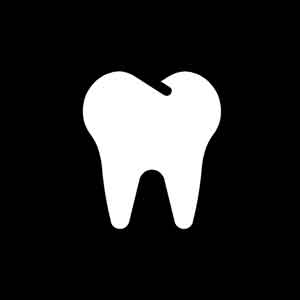ROUGH HYDROPHILIC
SURFACE
100% PURE bone mineral
DEPOT-EFFECT & Bioactive surface
The interconnected pores and superior hydrophilic surface of cerabone® support the adhesion of proteins from the blood. cerabone® binds and gradually releases signaling molecules thereby providing a long-term depot-effect1. In addition, the 100 % pure natural bone mineral acts as a calcium reservoir slowly releasing calcium ions important for bone remodeling2.
the purest volume stable bovine bone graft
cerabone® SMALL granules
| Art.-No. | Particle Size | Content |
|---|---|---|
| 1510 | 0.5 – 1.0 mm | 1 x 0.5 ml |
| 1511 | 0.5 – 1.0 mm | 1 x 1.0 ml |
| 1512 | 0.5 – 1.0 mm | 1 x 2.0 ml |
| 1515 | 0.5 – 1.0 mm | 1 x 5.0 ml |
cerabone® LARGE granules
| Art.-No. | Particle Size | Content |
|---|---|---|
| 1520 | 1.0 – 2.0 mm | 1 x 0.5 ml |
| 1521 | 1.0 – 2.0 mm | 1 x 1.0 ml |
| 1522 | 1.0 – 2.0 mm | 1 x 2.0 ml |
| 1525 | 1.0 – 2.0 mm | 1 x 5.0 ml |
cerabone® block
| Art.-No. | Dimension | Content |
|---|---|---|
| 1722 | 20 x 20 x 10 mm | 1 x block |

THREE-
DIMENSIONAL
PORE NETWORK
Human-like bone structure
The purest volume stable bovine bone graft
clinical experience in various medical applications
countries
scientific contributions
cerabone® is a 100% pure bone mineral of bovine origin manufactured by a unique 1200°C production process. It possesses a three-dimensional pore network and rough, hydrophilic surface that allows fast penetration and adsorption of blood and serum proteins. The sophisticated processing of the bovine bone removes all organic components resulting in a bone mineral with exceptional purity3. In addition, potential infectious agents such as bacteria, viruses and prions are removed through the high temperature treatment processing4. Both product and production process are fulfilling applicable national and international regulatory and safety requirements for bovine bone grafts including ISO 22422-1, ISO 22442-2 and ISO 22442-3.

UNIQUE
PRODUCTION PROCESS
> MAXIMUM SAFETY

100% PURE
BONE MINERAL

BIOACTIVE SURFACE
& DEPOT-EFFECT

SUPERIOR
HYDROPHILICITY

ULTIMATE
VOLUME STABILITY
REFERENCES
1 In vitro experiments from Prof. Dr. H. Jennissen and Dr. M. Laub University of Duisburg-Essen/Morphoplant GmbH
2 Berberi A, Samarani A, Nader N, Noujeim Z, Dagher M, Kanj W, Rita Mearawi,1 Ziad Salemeh,1 and Bassam Badran2 Physicochemical characteristics of bone substitutes used in oral surgery in comparison to autogenous bone. Biomed Res Int. 2014;2014:320790.
3 Tadic, D. and Epple, M. (2004), “A thorough physicochemical characterisation of 14 calcium phosphate-based bone substitution materials in comparison to natural bone”, Biomaterials, Vol. 25 No. 6, pp. 987–994.
4 Brown, P., Rau, E.H., Johnson, B.K., Bacote, A.E., Gibbs, C.J. and Gajdusek, D.C. (2000), New studies on the heat resistance of hamster-adapted scrapie agent: threshold survival after ashing at 600 degrees C suggests an inorganic template of replication, PNAS, Vol. 97 No. 7, pp. 3418–3421.


